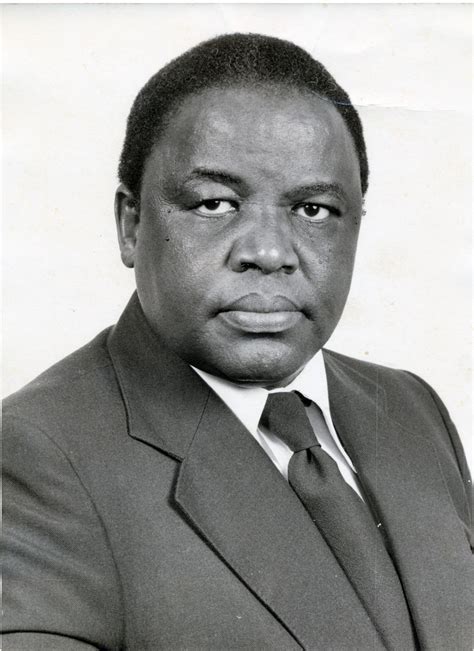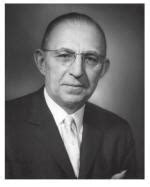A Quote by Ndabaningi Sithole
If one examines the American idea of freedom, the individual, free enterprise, their Constitution, their political and economic structures as well as their mode of exploiting their natural resources, all these are shrouded in the idea of justice.
Related Quotes
We have come to world leadership because our people have had the opportunity to develop this nation under a government and a Constitution that gave them political freedom and encouraged initiative, enterprise, responsibility, industry and thrift. Freedom and achievement are not unrelated. This nation has become one of history's finest illustrations of how a people can enrich life and raise their whole level of economic well-being when they are given justice, liberty and incentive.
To an American, that which deprives him of his freedom he regards as injustice, and that which allows him to enjoy that freedom he regards as justice. The concept of justice is as central to the totality of his being as freedom is, and this is not surprising, since the motivating idea behind the American Declaration of Independence was the fervent desire for justice.
In these sacred documents are embodied eternal principles that no man, group of men, or nation has the right to withhold from others. Here is our basis for freedom of individual achievement. Our Constitution with its Bill of Rights guarantees to all our people the greatest freedom ever enjoyed by the people of any great nation. This system guarantees freedom of individual enterprise, freedom to own property, freedom to start one's own business and to operate it according to one's own judgment so long as the enterprise is honorable.
The way in which we can promote peace, is by promoting sustainable management of our resources, equitable distribution of these resources, and that the only way you can actually do that, is that then you have to have a political, economic system that facilitates that. And then you get into the issues of human rights, justice, economic justice, social justice, and good governance or democratic governance. That's how it ties up.
Our example - and commitment - to freedom has changed the world. But along with the genius of our Declaration of Independence, our Constitution, and our Bill of Rights, is the equal genius of our economic system. Our Founding Fathers endeavored to create a moral and just society like no other in history, and out of that grew a moral and just economic system the likes of which the world had never seen. Our freedom, what it means to be an American, has been defined and sustained by the liberating power of the free enterprise system.
When we were told that by freedom we understood free enterprise, we did very little to dispel this monstrous falsehood. Wealth and economic well-being, we have asserted, are the fruits of freedom, while we should have been the first to know that this kind of happiness has been an unmixed blessing only in this country, and it is a minor blessing compared with the truly political freedoms, such as freedom of speech and thought, of assembly and association, even under the best conditions.
Adam Smith's was a real universalism in intent. Laissez Faire was intended to establish a world community as well as a natural harmony of interests within each nation... But the "children of darkness" were able to make good use of his creed. A dogma which was intended to guarantee the economic freedom of the individual became the "ideology" of vast corporate structures of a later period of capitalism, used by them, and still used, to prevent a proper political control of their power.
Freedom of enterprise was from the beginning not altogether a blessing. As the liberty to work or to starve, it spelled toil, insecurity, and fear for the vast majority of the population. If the individual were no longer compelled to prove himself on the market, as a free economic subject, the disappearance of this freedom would be one of the greatest achievements of civilization.
The State, on the other hand, both in its genesis and by its primary intention, is purely anti-social. It is not based on the idea of natural rights, but on the idea that the individual has no rights except those that the State may provisionally grant him. It has always made justice costly and difficult of access, and has invariably held itself above justice and common morality whenever it could advantage itself by so doing.































